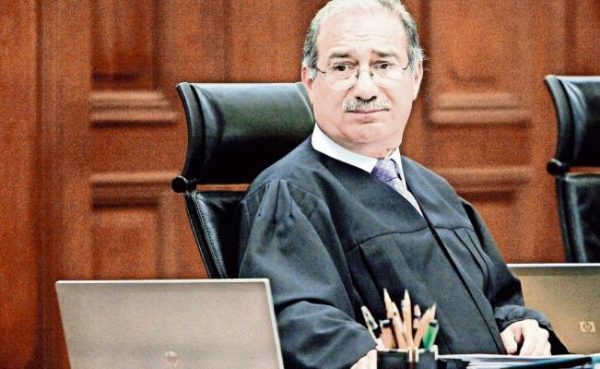Features of the transport service by ‘apps’ justify extra requirements: SCJN.
Mexico’s National Supreme Court of Justice (SCJN) rejected the proposal to invalidate the extra requirements for the transport service platforms such as Uber, contained in the Transportation Law of Yucatan.

Alberto Pérez Dayán, Supreme Court Minister in charge of the Uber Case in Yucatán (Photo: El Universal)
The project was carried out by Minister Alberto Pérez Dayán, who indicated that to establish special requirements for providing transport services operated through electronic platforms, which are not required for taxi drivers, was a direct transgression to the equality principle.
The ministers endorsed with eight votes against one from the Minister Norma Lucia Piña Hernandez the power of the local Congresses to regulate this kind of platforms.
In a plenary meeting, 8 of the 11 ministers considered that Uber can’t be regulated alongside a taxi service, because when the study on this situation was made, Pérez Dayán focused on studying some rules aimed at Uber drivers, not so to companies like this one, for which was requested to adapt the project.
The President of the Court, Luis María Aguilar Morales, emphasized that the distinction between the two services is the modality, not the object of transporting users.
“The regime provided by the Transportation Law of the state of Yucatan to regulate the concessionaires of the rental taxi service can’t be the appropriate comparison parameter to examine the constitutionality of the requirements that regulate the transfer of people, through the use of technological platforms.
“Although it is true that both have a similar object: the transport of passengers in the territory of the state, without time, route or intermediate stops, so it is that different modes of transportation service that can’t be compared.
“The service of transport of passengers contracted through technological platforms communicates passengers with independent drivers; this is done through a technological application, they connect drivers who offer particular services to consumers,” he said.
Instead of passing the project to another member of the court, Perez Dayán agreed to modify his proposal to submit it later, according to the considerations that Uber is a different service than taxis.
The original proposal sought to invalidate the requirement under the law of Yucatan that vehicles operating on these platforms have a value of more than 200 thousand pesos; must not be more than seven years old and have no more than seven seats, considering them to be in violation of the principle of equality.
It also considered a violation of the requirement that the person requesting the certificate as a transport service driver be the owner of the vehicle, which is not required for those who operate taxis, as the owner of the unit is often different from the operator.
Source: www.eluniversal.com.mx


